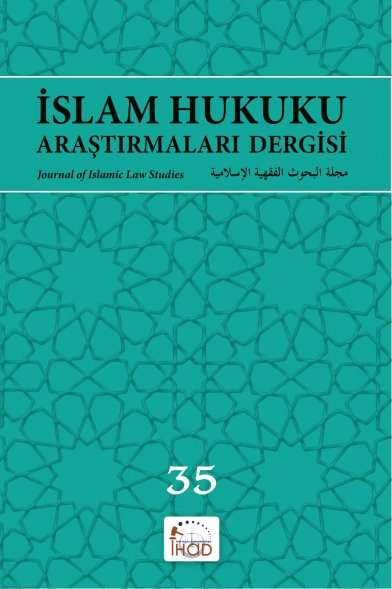Usûl-i Fıkha Modern Dönemde Yapılan Revizyon Çağrıları Işığında “İslam Hukuk Usûlü” Dersinin Daha Etkin Yürütülmesine Yönelik Mütevazı Bir Katkı
Fıkıh usûlü, İslam hakkında güvenilir araştırmalar yapmak için gereksinim duyulan bilimsel beceriyi sağlayan bir disiplindir. Aynı zamanda tutarlı bir hukuki tefekkür oluşturmanın en kestirme yoludur. Ancak bu bilim, tarihsel süreç içinde hem teknik hem de içerik olarak bir takım dönüşümlere şahit olmuştur. Dönüşümlerden bir kısmı, fıkıh usûlünü reel yaşamla ilgisi olmayan, içine kapanık ve özünden kopmuş bir bilim haline getirecek düzeyde gerçekleşmiştir. Bu durumu fark eden birçok bilgin ise, fıkıh usûlünün asli işlevini yapması ve sınırlarına çekilmesi yönünde çağrılarda bulunmuştur. Makale, sözü edilen çağrılardan ilham alarak, ilahiyat fakültelerindeki “İslam Hukuk Usûlü” dersinin daha verimli hale getirilmesi için bir takım önerilerde bulunmaktadır. Bunların bir kısmı ders kaynaklarının gözden geçirilmesine yönelik iken diğer kısmı uygulama tabanlı önerilerdir.
Anahtar Kelimeler:
Fıkıh, Usûl-i Fıkıh, İlahiyat Fakültesi, İslam Hukuk Usûlü, Revizyon
A Modest Contribution to the More Efficient Processing of the “Islamic Legal Method” Course in the Light of Revision Calls for Usul al-Fiqh Made in the Modern Period
Usul al-fiqh is a discipline that provides the scientific skills needed to do reliable research on Islam. It is also the shortest way to provide a consistent legal conception. However, this science has witnessed a number of transformations both in terms of technique and content in the historical process. Some of these transformations took place at a level that would make usul al-fiqh a science that is not interested in real life, introverted and withdrawn from its essence. Many scholars who have recognized this situation have been called usul al-fiqh to make the essential function and to draw it to its borders. The article has a number of suggestions for making the “The Methodology of Islamic Jurisprudence” course in the faculties of theology more productive, inspired by the callings mentioned. Some of these are aimed at glancing over course resources, while others are application-based suggestions.
Keywords:
Fiqh, Usul al-Fiqh, Faculties of Theology, The Methodology of Islamic Jurisprudence, Revision,
- ISSN: 1304-1045
- Yayın Aralığı: Yılda 2 Sayı
- Başlangıç: 2004
- Yayıncı: Gençleri Evlendirme ve Mehir Vakfı
Sayıdaki Diğer Makaleler
İslam Hukukunda Akıl Hastalarının Evliliği Meselesi
Vakıf Şirketi Aracılığıyla Vakıf Finansmanı
İslâm Hukukunda Gayrımüslimlerle İlişkiler Bağlamında Cihad Anlayışı
Kur’ân’ın Umûm Bildiren İfadelerinin Haber-i Vâhidle Tahsisi Konusundaki Usûlî Tartışmalar
Prof. Dr. Osman ESKİCİOĞLU Hocamızın Ardından
Akşam Namazının Vaktinin Başlangıcı İle İlgili Hadisler
